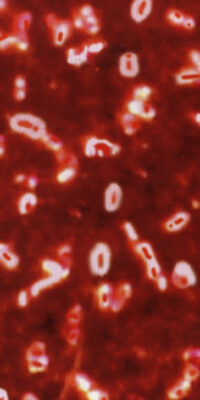A Klebsiella pneumoniae is a Gram-negative, nonmotile, encapsulated, lactose-fermenting, facultative anaerobic, rod-shaped bacterium. Klebsiella pneumoniae infection can cause different types of healthcare-associated infections, including pneumonia, bloodstream infections, wound or surgical site infections, and meningitis.
Transmission:
Klebsiella infections rarely occur in healthy individuals. The bacteria are not spread through the air. In healthcare settings, Klebsiella infections commonly occur among sick patients who are receiving treatment for other conditions. Patients whose care requires devices like ventilators or intravenous catheters and patients who are taking long courses of certain antibiotics are most at risk for Klebsiella infections.
Symptoms:
Klebsiella pneumoniae is a bacterium that normally lives inside human intestines, where it doesn’t cause disease. However, if Klebsiella gets into other areas of the body, it can cause a wide range of different illnesses. These may include:
- Pneumonia
- Bloodstream infections
- Wound infections
- Surgical site infections
- Meningitis
- Urinary tract infections (UTI)




